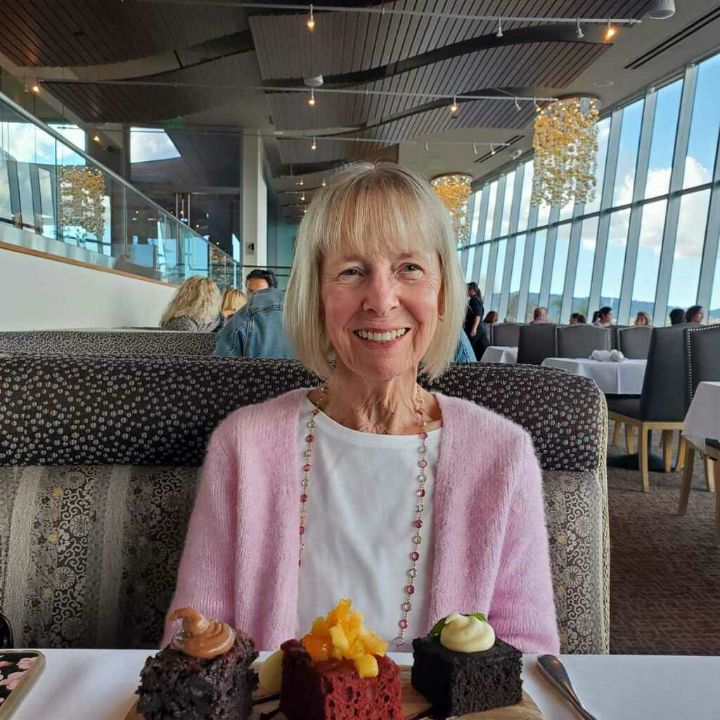
When Janice Dell came to City of Hope for treatment, she noticed right away that it was a very different type of hospital: “I’m sure that I just looked like a deer in headlights at first because I was so scared. Everyone I met — from the person at the front desk to anyone I saw in the hallways — would say hello to me, and if I looked lost, they would help me. And I have never been in an environment like that.”
Being diagnosed with a serious illness creates feelings of vulnerability, and navigating an unfamiliar hospital can add to that feeling. “It was a relief to have a patient advocate available to support me,” shares Janice. “I had someone to guide me, come to appointments with me and help me find my way. That was so important.”
And while decades have passed since Janice’s first visit, some things have not changed: “People are still so kind to patients and to each other. That reflects what City of Hope truly values.”
Last year, Janice decided to update her living trust. “I try to be very thoughtful about my plans. Since I don’t have a spouse or children, I was more reflective about my choices. I had already decided long ago to give some of my estate to charity. And without a doubt, City of Hope was my first choice because they saved my life.”
But Janice believes City of Hope saved more than her life: “They saved my mind and my soul with their supportive care. I still remember how scary it was to face my mortality at a younger age. And it mattered to them how I experienced my treatment and that I was supported through the process. Even then, they led the way with programs like yoga, meditation and other services. I could visit the Rose Garden and just relax in other beautiful locations when I needed to.”
Janice remembers fondly, “Right at the beginning of my treatment, my doctor recommended that I visit the Positive Image CenterSM — which helps men and women with managing the appearance – related side effects of cancer. I continued to work in a corporate setting, and it was important to me to maintain my professional appearance. He said it was better for me to decide about my wig before I lost my hair because he knew it mattered to me to look my best. That level of care and concern stayed with me.”
In updating her trust to include City of Hope, Janice also thought of City of Hope’s broader impact.
“City of Hope isn’t only a hospital. They have such a strong research team; they’re always discovering and learning — they are just so much more than a hospital. After I included gifts to my nieces and nephews in my estate plans, I included a percentage for City of Hope. I want it to go wherever they need it most. We can’t all be the geniuses who discover new cures, but we can help fund those who will!”
